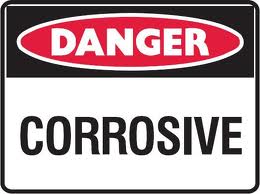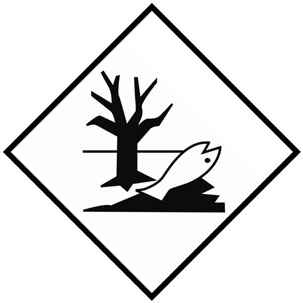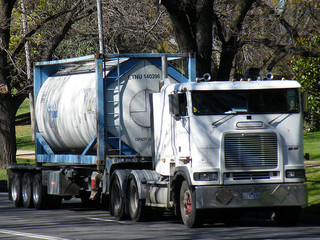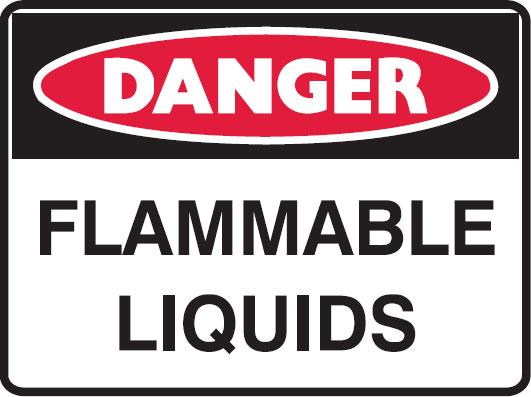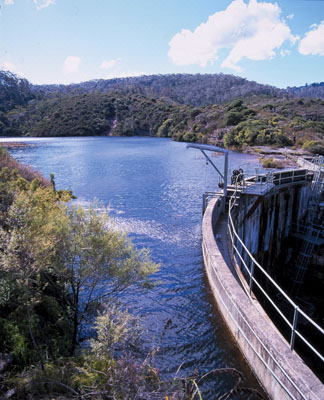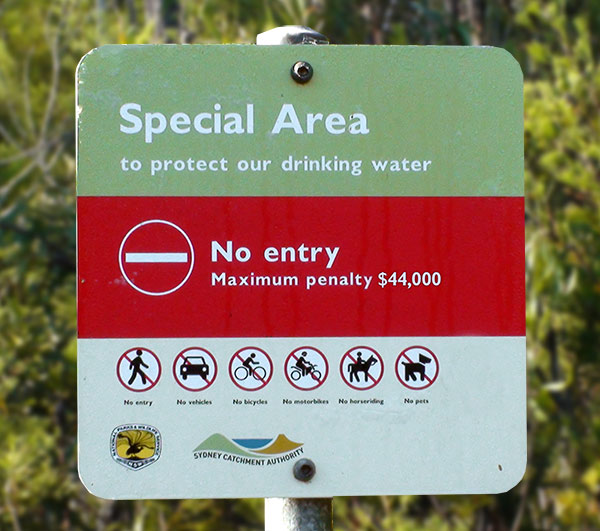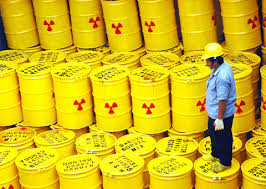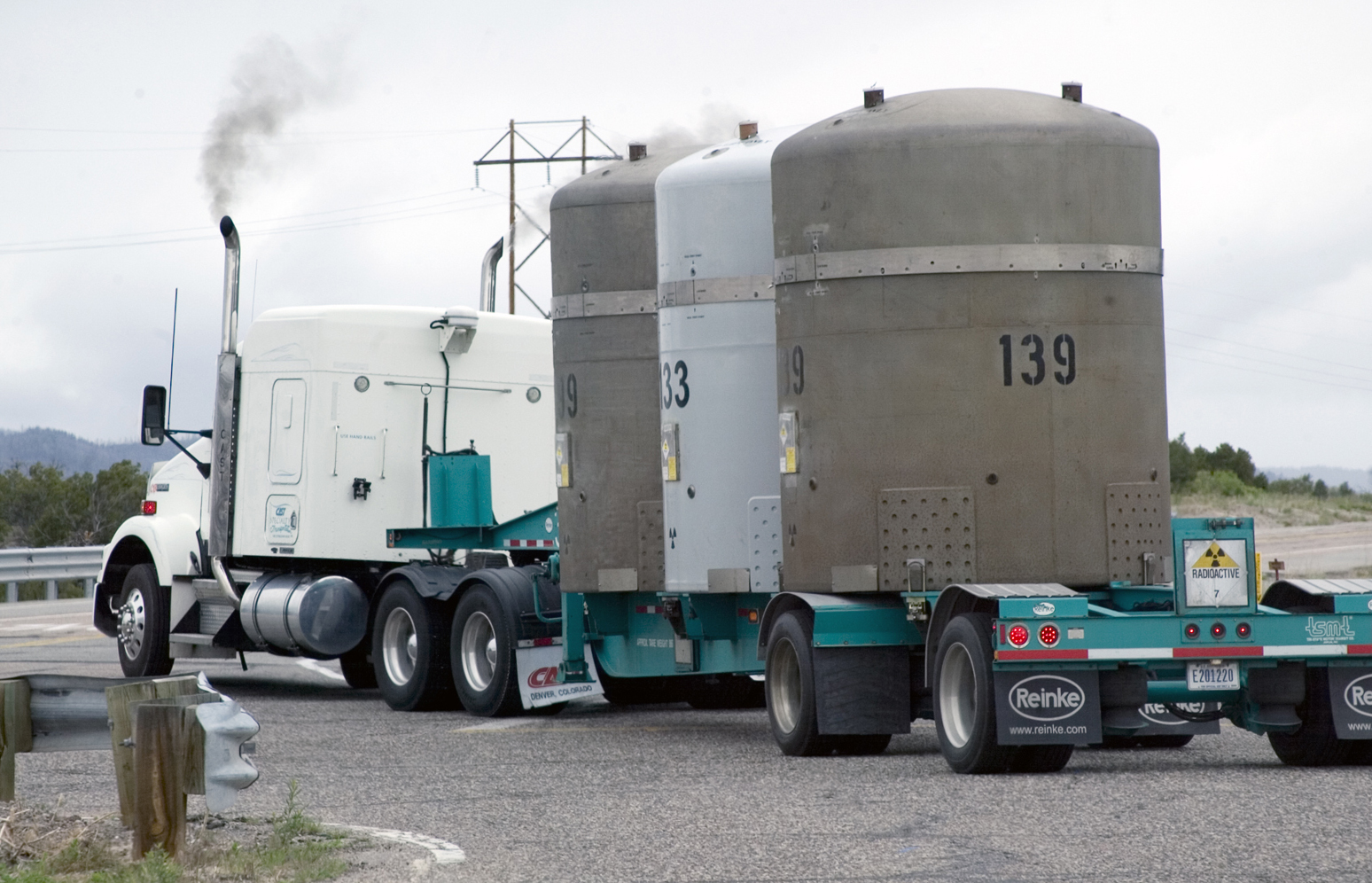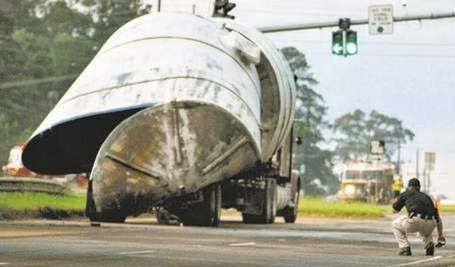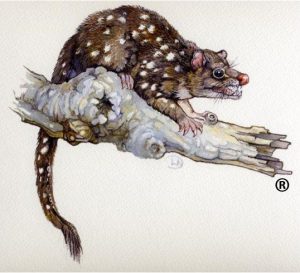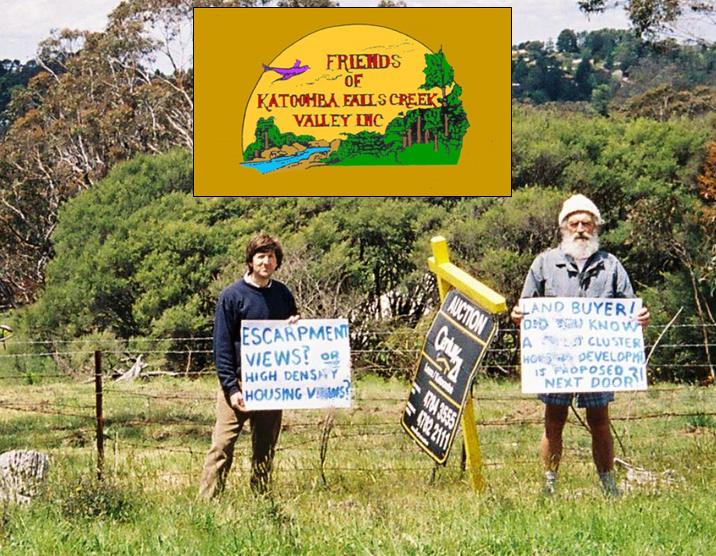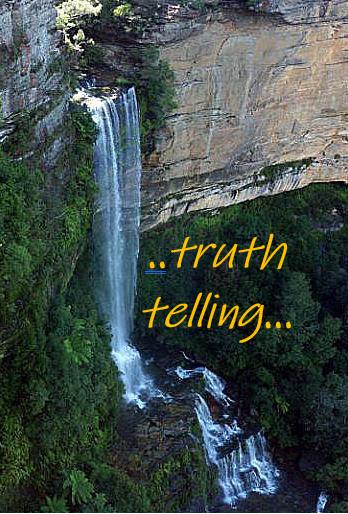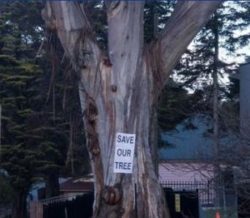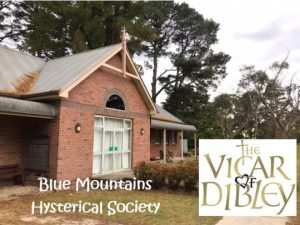Toxic chemicals trucked through World Heritage
Saturday, June 29th, 2013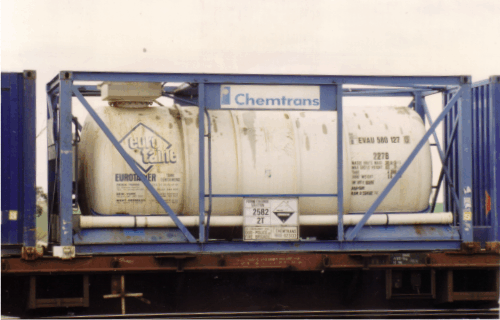 Toxic liquid chemicals being trucked through the Blue Mountains World Heritage Area
Toxic liquid chemicals being trucked through the Blue Mountains World Heritage Area.
The New South Wales Government decision in the late 1990s to permit 19-metre B-doubles to operate along the Great Western Highway was recognised by many informed Blue Mountains residents as the thin end of the wedge to encourage bigger and faster trucks and to extend Sydney sprawl.
Its planning minister in 2008, Frank Sartor, famously heralded:
.
“Few understand how much transport influences land use patterns. Transport leads land use. Once an expressway or railway is built, it is easy to change the zoning and development laws to increase the population along the corridor.”
.
~ Frank Sartor, NSW Planning Minister, Sydney Morning Herald, 20080929, p11.
.
The Greater Blue Mountains is a vast forested wilderness covering over one million hectares, characterised by ancient sandstone tablelands and escarpments, ancient temperate eucalypt forest types, rainforests, heathlands and swamps containing rare and endemic flora and ecological communities. It was formally inscribed on the World Heritage List on 29 November 2000 and constitutes one of the largest and most intact tracts of protected bushland in Australia.
.
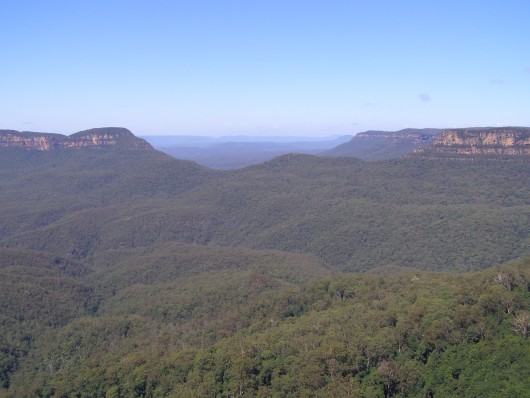 Jamison Valley wilderness and beyond
Blue Mountains World Heritage Area
[Photo by Editor, 20130307, Photo © under ^Creative Commons,
click image to enlarge]
Jamison Valley wilderness and beyond
Blue Mountains World Heritage Area
[Photo by Editor, 20130307, Photo © under ^Creative Commons,
click image to enlarge]
.
Along the headwaters of the Jamison Valley above Wentworth Falls, the Jamison Creek flows as a stormwater drain underneath the Great Western Highway.
On or about 7th July 2012, a large quantity of toxic pyrethrin, used as a fumigation pesticide, was dumped into the creek resulting in extermination of all aquatic wildlife downstream and into the World Heritage below. [Source: ‘Health risk posed by Wentworth Falls creek, 20120711, Blue Mountains Gazette newspaper, ^http://www.bluemountainsgazette.com.au/story/273589/health-risk-posed-by-wentworth-falls-creek/]
A year on and still no prosecution has been made against the culprit known by both the local council and the EPA. The contamination could easily have come from the overturning of one of the many trucks that ply the highway now carting toxic chemicals, nudging 90kph.
The Great Western Highway winds its way over the central plateau ridgeline of the Blue Mountains east to west from Sydney. In every respect, the Greater Blue Mountains World Heritage Area is juxtaposed downstream of this highway.
.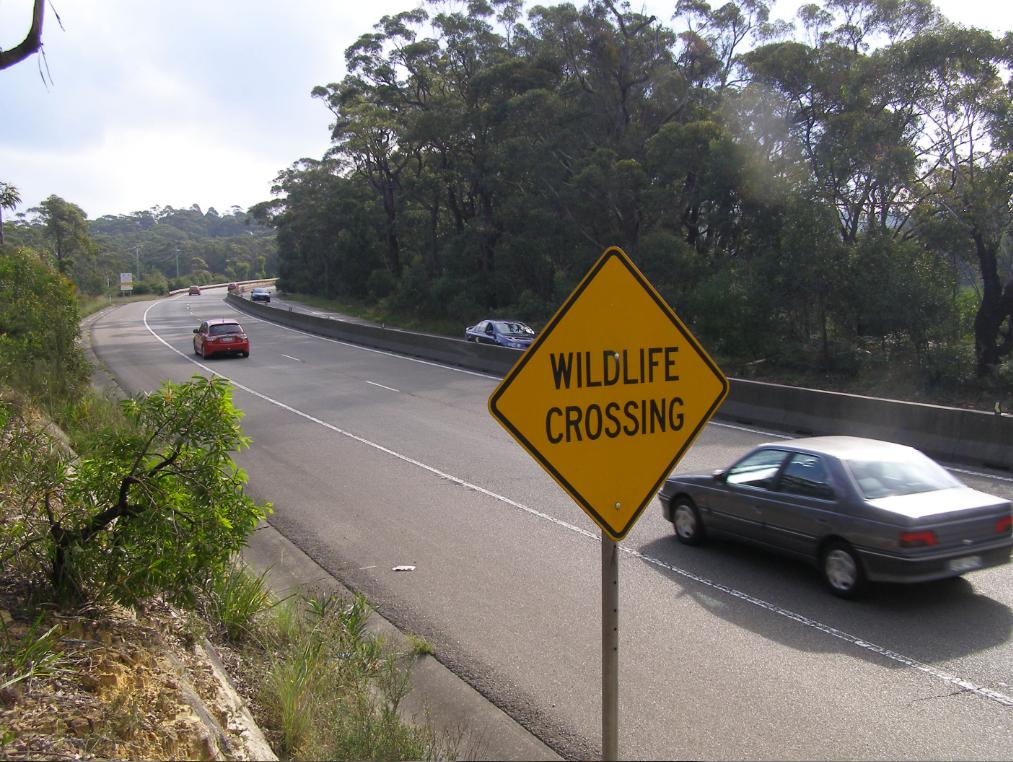 Great Western Highway at Boddington Hill before the Trucking Expressway conversion
The notorious greenwashing sign
[Photo by Editor, 20100327, Photo © under ^Creative Commons]
Great Western Highway at Boddington Hill before the Trucking Expressway conversion
The notorious greenwashing sign
[Photo by Editor, 20100327, Photo © under ^Creative Commons]
.
Increasingly, the Great Western Highway is becoming dominated by larger trucks and an increasing frequency of B-Double Trucks carting sand and soil, containers, palletised freight, heavy machinery and bulk liquids. Transport companies are not delivering to the Blue Mountains; they are transiting through the Blue Mountains for destinations far beyond including Perth and Darwin.
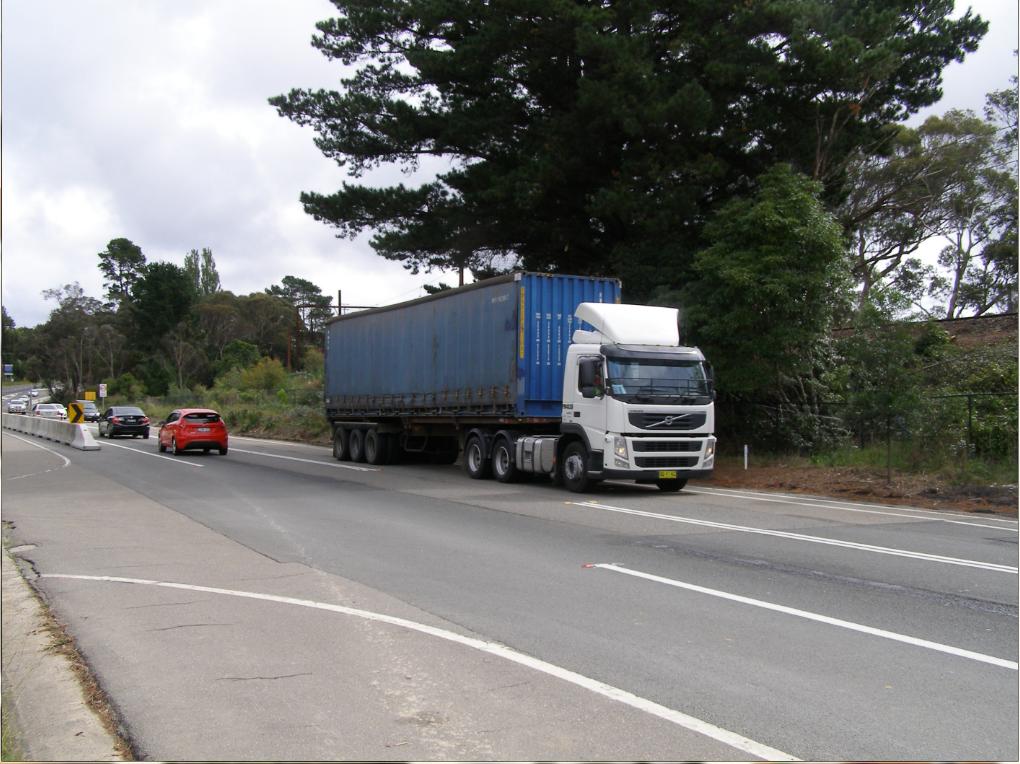 One of the many thousands of larger trucks that now dominate the Great Western Highway
Political lobbying by trucking companies continues to be the prime driver for the multi-billion conversion of this regional highway into a 4-laned interstate Trucking Expressway nudging 90kph.
[Photo by Editor at Bullaburra looking west, 20130406, Photo © under ^Creative Commons]
One of the many thousands of larger trucks that now dominate the Great Western Highway
Political lobbying by trucking companies continues to be the prime driver for the multi-billion conversion of this regional highway into a 4-laned interstate Trucking Expressway nudging 90kph.
[Photo by Editor at Bullaburra looking west, 20130406, Photo © under ^Creative Commons]
.
However, local Blue Mountains supporters of this website have informed us that recently the trend is worse, with chemical tank containers now being sighted. The company transporting these bulk chemicals is Chemtrans, a subsidiary of corporate trucker, Scott Corporation, based in Sydney’s west industrial suburb of Padstow.
The tanks display hazardous warnings on the sides.
What chemicals are being trucked over the Blue Mountains anyway?
.
-
Sulphuric Acid?
-
Phosphoric Acid?
-
Anhydrous Ammonia?
-
Vinyl Chloride Monimor?
.
Kills Nature
How can this be? What if there is a crash and a spill?
.
With substandard toxic containment infrastructure, World Heritage dies.
.
The Great Western Highway is not designed to contain large flash runoff from storms, let alone contain chemical spills toxic to ecology from entering the downstream headwaters and water courses that flow from the ridgeline down into the surrounding Greater Blue Mountains World Heritage Area.
.
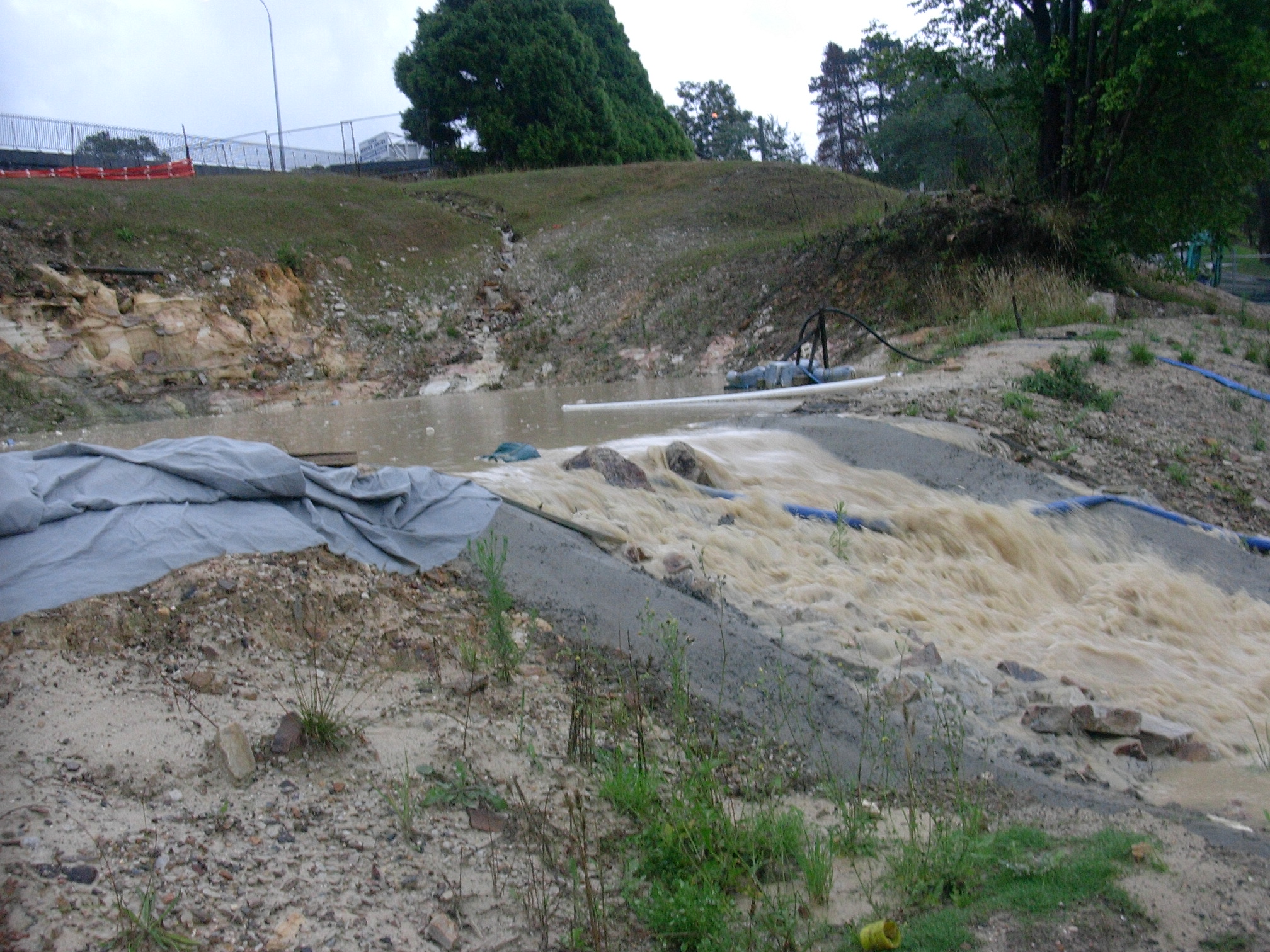 The notorious Leura Retention Basin overflowing during the construction of the Trucking Expressway in 2006
The NSW Government allowed hundreds of tonnes of piled construction sand to wash into and fill the surrounding watercourses and into the World Heritage Area
The then RTA Project Manager, Iain MacLeod, tried excuse the seasonal frequent and heavy rainfall as ‘One in a Hundred Year Events’
[Photo by Editor at Leura north side of highway, 20060116, Photo © under ^Creative Commons]
The notorious Leura Retention Basin overflowing during the construction of the Trucking Expressway in 2006
The NSW Government allowed hundreds of tonnes of piled construction sand to wash into and fill the surrounding watercourses and into the World Heritage Area
The then RTA Project Manager, Iain MacLeod, tried excuse the seasonal frequent and heavy rainfall as ‘One in a Hundred Year Events’
[Photo by Editor at Leura north side of highway, 20060116, Photo © under ^Creative Commons]
.
So when did the NSW Government give permission for bulk toxic chemicals to be transported through the Blue Mountains? What community consultation did the government not engage in? What legislative safety and governance restrictions were not enacted?
.
She’ll Be Right, eh Barry O’Farrell?
.
..Just like when in May this year, a FULLY-LADEN DOUBLE FUEL TANKER overturned in a short, straight, three-laned section of the highway between Katoomba and Medlow Bath in the early hours of Sunday, May 12. The giant rig owned by Orange-based Ron Finemores Transport was being driven west when it veered onto the road shoulder and overturned down an embankment, coming to rest with the twin tankers upside down.
She’ll Be Right, eh Barry O’Farrell?
.
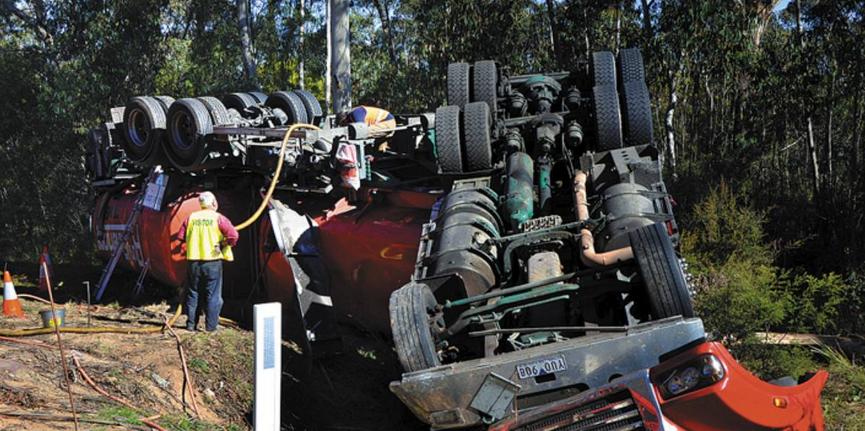 The scene at Sunday morning’s truck crash near Medlow Bath.
Driver fatigue is suspected as a possible cause of the smash.
[Source: Photo: Len Ashworth, Lithgow Mercury, in article ‘Lucky escape for truck driver, 20130515, by Len Ashworth, Blue Mountains Gazette newspaper, ^http://www.bluemountainsgazette.com.au/story/1500162/lucky-escape-for-truck-driver/]
The scene at Sunday morning’s truck crash near Medlow Bath.
Driver fatigue is suspected as a possible cause of the smash.
[Source: Photo: Len Ashworth, Lithgow Mercury, in article ‘Lucky escape for truck driver, 20130515, by Len Ashworth, Blue Mountains Gazette newspaper, ^http://www.bluemountainsgazette.com.au/story/1500162/lucky-escape-for-truck-driver/]
.
The tanker overturned in bushland just upstream from the Cascade Water Catchment that stores drinking water for the region and in which fines for tresspass are $44,000.
But Ron Finemores Transport was not fined the $44,000. Why not?
.
.
Sydney Water ‘Special Areas’ prohibit public entry in order to protect water quality.
This benefits the community by:
- Protecting water quality
- Protecting large areas of bushland and plant and animal habitats
- Protecting threatened plants and animal species
- Preserving evidence of Aboriginal occupation dating back many thousands of years, and
- Preserving evidence of non-Aboriginal exploration, early settlement and phases of development such as forestry, mining and dam building.
.
[Source: Sydney Catchment Authority, NSW Government, ^http://www.sca.nsw.gov.au/the-catchments/special-areas].
What Next? Trucking nuclear waste through the Blue Mountains?
.
Don’t put it past them. There are plans afoot to truck radioactive waste and parts of Australia’s old 1960s nuclear reactor out of Sydney under plans to clean up the Lucas Heights nuclear facility and develop a national hazardous-waste dump in the outback.
The trucks will necessarily pass by residential homes carrying a radioactive high-flux reactor’ and spent fuel rods.
The Sources of Radioactive Waste
.
- The Australian Nuclear Science and Technology Organisation, which manages the Lucas Heights Nuclear Reactor, has been given $28.7 million to prepare for the move. The four-year funding package will pay for ‘pre-disposal conditioning of existing radioactive waste in preparation for long-term underground storage, including radioactive contaminated buildings and infrastructure at Lucas Heights.
- Also planned to be trucked is nuclear contaminated soil waste from the former uranium smelter site at Hunters Hill.
- Also planned to be trucked is spent fuel rods after they were reprocessed at a nuclear facility in France.
.
The target waste disposal site is on remote Aboriginal land near Muckaty, 800 km south of Darwin (specifically 100 km north of Tennant Creek) in the Northern Territory. The most direct trucking route, some 2,387 km from Lucas Heights, is via the Great Western Highway through the Blue Mountains World Heritage Area.
The only other feasible trucking route is via the Pacific Highway to Newcastle and then north-west along the Golden Highway, which is unlikely because it would pass through more densely populated communities.
The Australian Government approved its Radioactive Waste Dump at Muckaty in the Northern Territory under the National Radioactive Waste Management Bill 2010, passed through the Senate on 13 March, 2012.
This was in blatant contradiction to years of resistance and opposition from from the remote and marginalised Muckaty indigenous community and supportive environmental groups. Traditonal Owners maintain that both the Northern Land Council and the Commonwealth failed to accurately identify, consult with and receive their consent and are seeking to reverse the decision.
What’s new?
Responsible radioactive waste management needs an approach based on:
- Non-imposition
- Community consent
- Scientific and procedural rigour.
.
None of the approaches was observed during the opaque transition of this proposal into law.
.
[Source: ‘Nuclear waste on the move in clean-up’, 20130516, by Heath Aston, Political reporter, Sydney Morning Herald, ^http://www.smh.com.au/nsw/nuclear-waste-on-the-move-in-cleanup-20130515-2jmu5.html; and ‘Muckaty radioactive dump’, not dated (2013?), by Manuwangku, Australian Conservation Foudnation, ^http://www.acfonline.org.au/be-informed/northern-australia-nuclear/muckaty-radioactive-dump].
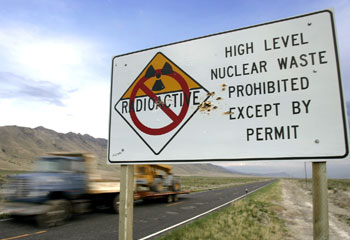 The Australian Government’s preferred site for Nuclear Waste
is Muckaty Station, near Tennant Creek,
trucked from Lucas Heights, Botany and Hunters Hill through the Blue Mountains.
The Australian Government’s preferred site for Nuclear Waste
is Muckaty Station, near Tennant Creek,
trucked from Lucas Heights, Botany and Hunters Hill through the Blue Mountains.
.
In 1997, a train carrying 180 tonnes of high-level nuclear waste derailed in France. In 2004, a truck spilled strontium-90 onto Highway 95 in Roane County, Tennessee.
.
She’ll be Right!.
America 2011:
.
<< With the passage of Senate Bill 1504 in the Texas Senate (Texas Low-Level Radioactive Waste Disposal Compact) , radioactive waste could soon be barreling down Texas highways and through our neighborhoods by way of Interstate 10 through Houston, San Antonio and El Paso; Interstate-20 and Interstate-30 though Dallas and Forth Worth, Midland and Odessa ; and Interstate-27 though Lubbock and Amarillo.
The greatest risk we face is having an accident with vehicles containing waste. Cleanup estimates range from $100 to a billion dollars or more according to the U.S. Department of Energy, but the state of Texas has set aside only $500,000. Taxpayers would pay the rest.
And what if an accident happens next to a school, playground or hospital? Don’t we want to make sure that our local emergency responders have the training and equipment needed to handle an accident where a truck is leaking radioactive waste?
Thanks to Senator Seliger’s leadership, there have been some important protections added in, but a number of loopholes remain that dramatically increases the risk and liability assumed by Texas taxpayers. There is still a chance to close these loopholes. This bill goes to the Texas House floor next week and Texans should ask their legislators to make sure that there is an immediate thorough analysis of transportation risks, costs of cleaning up contamination from accidents or leaks, and waste capacity at the site.
As the Japanese nuclear disaster has taught us, cleaning up after radioactive waste can be a costly and dangerous process. We urge the house to make sure we have protective measures in place before an accident. >>
.
[Ed: The Texas Senate Bill 1504 was made effective 9th January 2011]
.
[Source: Radioactive Waste Could Be Rumbling Through Your Town Unless State Legislators Close Loopholes in SB 1504, 20110414, by Citizen Carol, ^http://texasvox.org/2011/04/14/radioactive-waste-could-be-rumbling-through-your-town-unless-state-legislators-close-loopholes-in-sb-1504/]
